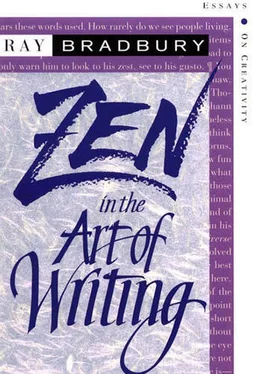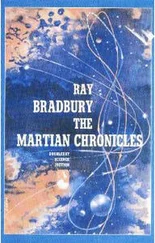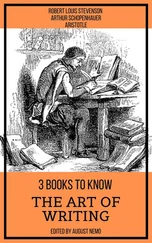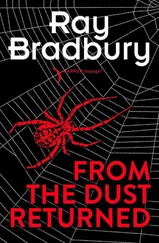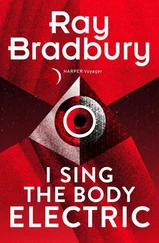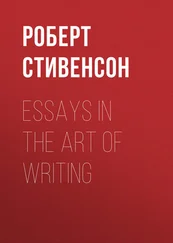Ray Bradbury - Zen in the Art of Writing
Здесь есть возможность читать онлайн «Ray Bradbury - Zen in the Art of Writing» весь текст электронной книги совершенно бесплатно (целиком полную версию без сокращений). В некоторых случаях можно слушать аудио, скачать через торрент в формате fb2 и присутствует краткое содержание. Жанр: Биографии и Мемуары, на английском языке. Описание произведения, (предисловие) а так же отзывы посетителей доступны на портале библиотеки ЛибКат.
- Название:Zen in the Art of Writing
- Автор:
- Жанр:
- Год:неизвестен
- ISBN:нет данных
- Рейтинг книги:4 / 5. Голосов: 1
-
Избранное:Добавить в избранное
- Отзывы:
-
Ваша оценка:
- 80
- 1
- 2
- 3
- 4
- 5
Zen in the Art of Writing: краткое содержание, описание и аннотация
Предлагаем к чтению аннотацию, описание, краткое содержание или предисловие (зависит от того, что написал сам автор книги «Zen in the Art of Writing»). Если вы не нашли необходимую информацию о книге — напишите в комментариях, мы постараемся отыскать её.
Zen in the Art of Writing — читать онлайн бесплатно полную книгу (весь текст) целиком
Ниже представлен текст книги, разбитый по страницам. Система сохранения места последней прочитанной страницы, позволяет с удобством читать онлайн бесплатно книгу «Zen in the Art of Writing», без необходимости каждый раз заново искать на чём Вы остановились. Поставьте закладку, и сможете в любой момент перейти на страницу, на которой закончили чтение.
Интервал:
Закладка:
If you ever touch Florence, come to see me.
Sincerely yours, B. BERENSON.
Thus, at the age of thirty-three, I had my way of seeing, writing and living approved of by a man who became a second father to me.
I needed that approval. We all need someone higher, wiser, older to tell us we're not crazy after all, that what we're doing is all right. All right, hell, fine !
But it is easy to doubt yourself, because you look around at a community of notions held by other writers, other intellectuals, and they make you blush with guilt. Writing is supposed to be difficult, agonizing, a dreadful exercise, a terrible occupation.
But, you see, my stories have led me through my life. They shout, I follow. They run up and bite me on the leg-I respond by writing down everything that goes on during the bite. When I finish, the idea lets go, and runs off.
That is the kind of life I've had. Drunk, and in charge of a bicycle, as an Irish police report once put it. Drunk with life, that is, and not knowing where off to next. But you're on your way before dawn. And the trip? Exactly one half terror, exactly one half exhilaration.
When I was three my mother snuck me in and out of movies two or three times a week. My first film was Lon Chaney in The Hunchback of Notre Dame . I suffered permanent curvature of the spine and of my imagination that day a long time ago in 1923. From that hour on, I knew a kindred and wonderfully grotesque compatriot of the dark when I saw one. I ran off to see all the Chaney films again and again to be deliciously frightened. The Phantom of the Opera stood astride my life with his scarlet cape. And when it wasn't the Phantom it was the terrible hand that gestured from behind the bookcase in The Cat and the Canary , bidding me to come find more darkness hid in books.
I was in love, then, with monsters and skeletons and circuses and carnivals and dinosaurs and, at last, the red planet, Mars.
From these primitive bricks I have built a life and a career. By my staying in love with all of these amazing things, all of the good things in my existence have come about.
In other words, I was not embarrassed at circuses. Some people are. Circuses are loud, vulgar, and smell in the sun. By the time many people are fourteen or fifteen, they have been divested of their loves, their ancient and intuitive tastes, one by one, until when they reach maturity there is no fun left, no zest, no gusto, no flavor. Others have criticized, and they have criticized themselves, into embarrassment. When the circus pulls in at five of a dark cold summer morn, and the calliope sounds, they do not rise and run, they turn in their sleep, and life passes by.
I did rise and run. I learned that I was right and everyone else wrong when I was nine. Buck Rogers arrived on scene that year, and it was instant love. I collected the daily strips, and was madness maddened by them. Friends criticized. Friends made fun. I tore up the Buck Rogers strips. For a month I walked through my fourth-grade classes, stunned and empty. One day I burst into tears, wondering what devastation had happened to me. The answer was: Buck Rogers. He was gone, and life simply wasn't worth living. The next thought was: Those are not my friends, the ones who got me to tear the strips apart and so tear my own life down the middle; they are my enemies.
I went back to collecting Buck Rogers. My life has been happy ever since. For that was the beginning of my writing science fiction. Since then, I have never listened to anyone who criticized my taste in space travel, sideshows or gorillas. When this occurs, I pack up my dinosaurs and leave the room.
For, you see, it is all mulch. If I hadn't stuffed my eyes and stuffed my head with all of the above for a lifetime, when it came round to word-associating myself into story ideas, I would have brought up a ton of ciphers and a half-ton of zeros.
"The Veldt" is a prime example of what goes on in a headful of images, myths, toys. Back some thirty years ago I sat down to my typewriter one day and wrote these words: "The Playroom." Playroom where? The Past? No. The Present? Hardly. The Future? Yes! Well, then, what would a Playroom in some future year be like? I began typing, word-associating around the room. Such a Playroom must have television monitors lining each wall, and the ceiling. Walking into such an environment, a child could shout: River Nile! Sphinx! Pyramids! and they would appear, surrounding him, in full color, full sound, and, why not? Glorious warm scents and smells and odors, pick one, for the nose!
All this came to me in a few seconds of fast typing. I knew the room, now I must put characters in the room. I typed out a character named George, brought him into a future-time kitchen, where his wife turned and said:
"George, I wish you'd look at the Playroom. I think it's broken-" George and his wife go down the hall. I follow them, typing madly, not knowing what will happen next. They open the door of the Playroom and step in.
Africa. Hot sun. Vultures. Dead meat. Lions.
Two hours later the lions leaped out of the walls of the Playroom and devoured George and his wife, while their TVdominated children sat by and sipped tea.
End of word-association. End of story. The whole thing complete and almost ready to send out, an explosion of idea, in something like 120 minutes.
The lions in that room, where did they come from?
From the lions I found in the books in the town library when I was ten. From the lions I saw in the real circuses when I was five.
From the lion that prowled in Lon Chaney's film He Who Gets Slapped in 1924!
In 1924! you say, with immense doubt. Yes, 1924. I didn't see the Chaney film again until a year ago. As soon as it flashed on the screen I knew that that was where my lions in "The Veldt" came from. They had been hiding out, waiting, given shelter by my intuitive self, all these years.
For I am that special freak, the man with the child inside who remembers all. I remember the day and the hour I was born. I remember being circumcised on the fourth day after my birth. I remember suckling at my mother's breast. Years later I asked my mother about the circumcision. I had information that couldn't have been told to me, there would be no reason to tell a child, especially in those still-Victorian times. Was I circumcised somewhere away from the lying-in hospital? I was. My father took me to the doctor's office. I remember the doctor. I remember the scalpel.
I wrote the story "The Small Assassin" twenty-six years later. It tells of a baby born with all its senses operative, filled with terror at being thrust out into a cold world, and taking revenge on its parents by crawling secretly about at night and at last destroying them.
When did it all really begin? The writing, that is. Everything came together in the summer and fall and early winter of 1932.
By that time I was stuffed full of Buck Rogers, the novels of Edgar Rice Burroughs, and the night-time radio serial "Chandu the Magician." Chandu said magic and the psychic summons and the Far East and strange places which made me sit down every night and from memory write out the scripts of each show.
But the whole conglomeration of magic and myths and falling downstairs with brontosaurs only to arise with La of Opar, was shaken into a pattern by one man, Mr. Electrico.
He arrived with a seedy two-bit carnival, The Dill Brothers Combined Shows, during Labor Day weekend of 1932, when I was twelve. Every night for three nights, Mr. Electrico sat in his electric chair, being fired with ten billion volts of pure blue sizzling power. Reaching out into the audience, his eyes flaming, his white hair standing on end, sparks leaping between his smiling teeth, he brushed an Excalibur sword over the heads of the children, knighting them with fire. When he came to me, he tapped me on both shoulders and then the tip of my nose. The lightning jumped into me. Mr. Electrico cried: "Live forever!"
Читать дальшеИнтервал:
Закладка:
Похожие книги на «Zen in the Art of Writing»
Представляем Вашему вниманию похожие книги на «Zen in the Art of Writing» списком для выбора. Мы отобрали схожую по названию и смыслу литературу в надежде предоставить читателям больше вариантов отыскать новые, интересные, ещё непрочитанные произведения.
Обсуждение, отзывы о книге «Zen in the Art of Writing» и просто собственные мнения читателей. Оставьте ваши комментарии, напишите, что Вы думаете о произведении, его смысле или главных героях. Укажите что конкретно понравилось, а что нет, и почему Вы так считаете.
